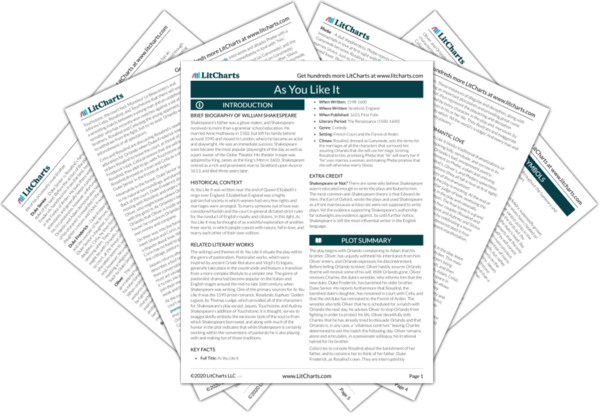A popular symbol for cuckoldry, supposedly grown on the heads of men whose wives have cheated on them, horns come up in conversation at various points in the play. , for instances, proposes that the lords put the horns of a deer they have slaughtered on the duke’s head, like “a branch of victory” and Touchstone later asserts that the only audience he will have for his wedding with Audrey will consist of “horn beasts,” and that “by so much is a horn more precious than to want.” In both instances, the symbolic mention of horns does not refer to an actual cuckold or cheating wife, but rather to cuckoldry in theory, and both come down positively on the hypothetical cuckold, though with a good deal of irony. Jaques posits horns as a source of victorious pride, and Touchstone suggests that it is preferable to be a cheated-on husband than a respected bachelor, better to be married and slighted than alone and unharmed.
